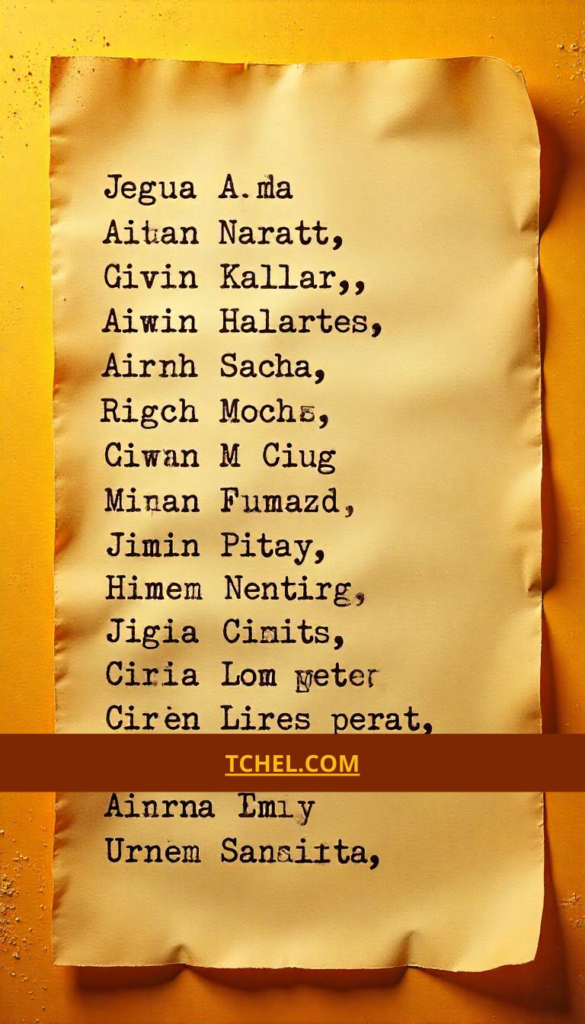The Victorian era last names hold a unique charm, echoing the grandeur, tradition, and societal intricacies of 19th-century England. Imagine walking through cobblestone streets lined with carriages, where names like “Thornbury” or “Ashcroft” whispered tales of aristocracy, tradesmanship, and resilience. These last names Victorian era were far more than mere labels; they were emblems of heritage, often reflecting a person’s occupation, social standing, or geographic roots. From the stately “Beaumont” to the humble “Fletcher,” every name carried a story, etched in the annals of history.
The Victorian epoch was a time of transition—industrial revolutions, sprawling cities, and rigid class structures. In this world, a surname could signify power or poverty, legacy or labor. Such was the importance of these names that they often dictated first impressions, defining one’s identity within a rapidly evolving society. Victorian era last names like “Fairchild” or “Whitmore” evoke a certain nostalgia, painting vivid images of parlors filled with gilded furniture and bustling factories fueling an empire.
Discover the world behind these fascinating surnames, and uncover the historical nuances that shaped identities in an era of elegance and upheaval. Whether you’re intrigued by genealogy or simply captivated by history, delving into the stories of last names Victorian era offers a compelling glimpse into a bygone world. Let’s step back in time to explore the legacy of these timeless names.

list of Victorian-era last names:
Here is a list of Victorian-era last names, often associated with 19th-century England. These names range from aristocratic to common surnames of the time. I’ll organize them into smaller groups for readability:
A-C
- Abbott
- Adams
- Ashworth
- Baker
- Barton
- Bennett
- Bishop
- Blackwell
- Bradshaw
- Browning
- Carter
- Chapman
- Clarke
- Collier
- Cooke
- Cooper
- Cox
- Crawford
- Cunningham
- Curtis
D-F
- Dalton
- Dawson
- Dean
- Dickinson
- Doyle
- Drake
- Duncan
- Edwards
- Ellison
- Emerson
- Evans
- Fairfax
- Farrow
- Fielding
- Fletcher
- Forbes
- Foster
- Fox
- Franklin
- Fraser
G-I
- Garland
- Gibson
- Gilmore
- Goodwin
- Graham
- Grant
- Green
- Greaves
- Gregory
- Hale
- Hall
- Hamilton
- Hardy
- Harper
- Harris
- Harrison
- Hawkins
- Hayes
- Heath
- Hewitt
J-L
- Jackson
- James
- Jarvis
- Jefferson
- Jennings
- Johnson
- Jones
- Keating
- Kemp
- Kennedy
- Knight
- Larkin
- Lawrence
- Lee
- Lewis
- Lloyd
- Longworth
- Lucas
- Lyle
- Lynch
M-O
- Marshall
- Mason
- Matthews
- Maxwell
- Mayfield
- McAllister
- McIntyre
- Middleton
- Miles
- Miller
- Mitchell
- Moore
- Morgan
- Morrison
- Nash
- Nelson
- Nichols
- Norris
- North
- Oakes
P-R
- Parker
- Parsons
- Payne
- Pearson
- Pennington
- Perkins
- Perry
- Peters
- Phelps
- Phillips
- Porter
- Preston
- Price
- Pritchard
- Radcliffe
- Ramsay
- Randall
- Rayner
- Reynolds
- Richards
S-U
- Saunders
- Scott
- Sharpe
- Shaw
- Shepherd
- Sinclair
- Slater
- Smith
- Spencer
- Steele
- Stevenson
- Stokes
- Sutton
- Taylor
- Thompson
- Thornton
- Townsend
- Turner
- Underwood
- Usher
V-Z
- Valentine
- Vaughan
- Vernon
- Wade
- Walker
- Wallace
- Walsh
- Ward
- Warner
- Warren
- Waters
- Watson
- Weaver
- Webb
- Weston
- White
- Wilcox
- Wilkinson
- Williams
- Wilson
Conclusion:
The Victorian era last names hold a captivating significance, rooted in the cultural and social dynamics of the 19th century. These surnames were more than mere identifiers; they were a reflection of heritage, class, and often, profession. From the cobbled streets of England to the emerging towns of America, common last names in the Victorian era revealed a tapestry of stories. For instance, english last names Victorian era like “Baker,” “Smith,” and “Cooper” were tied to trades, while british last names Victorian era such as “Fairfax” and “Thornhill” often symbolized nobility or landownership.
Across the channel, french last names Victorian era brought their own elegance, with names like “Beaumont” and “Dubois” often associated with aristocracy or geographic origins. The influence of these surnames extended to the New World, where american Victorian era last names blended traditions from Europe, creating a fascinating mix of heritage.
For those curious about genealogy or naming conventions, tools like a Victorian era last name generator can provide insights into these timeless surnames. While researching, you might notice that common last names Victorian era were often dictated by a person’s occupation or location. Meanwhile, rarer last names from the Victorian era carried an air of exclusivity, hinting at a distinguished lineage.
The charm of these names lies in their ability to transport us to a time of industrial revolutions, societal hierarchy, and timeless elegance. Whether exploring last names Victorian era for historical research or personal interest, they offer a window into the intricacies of a bygone age.